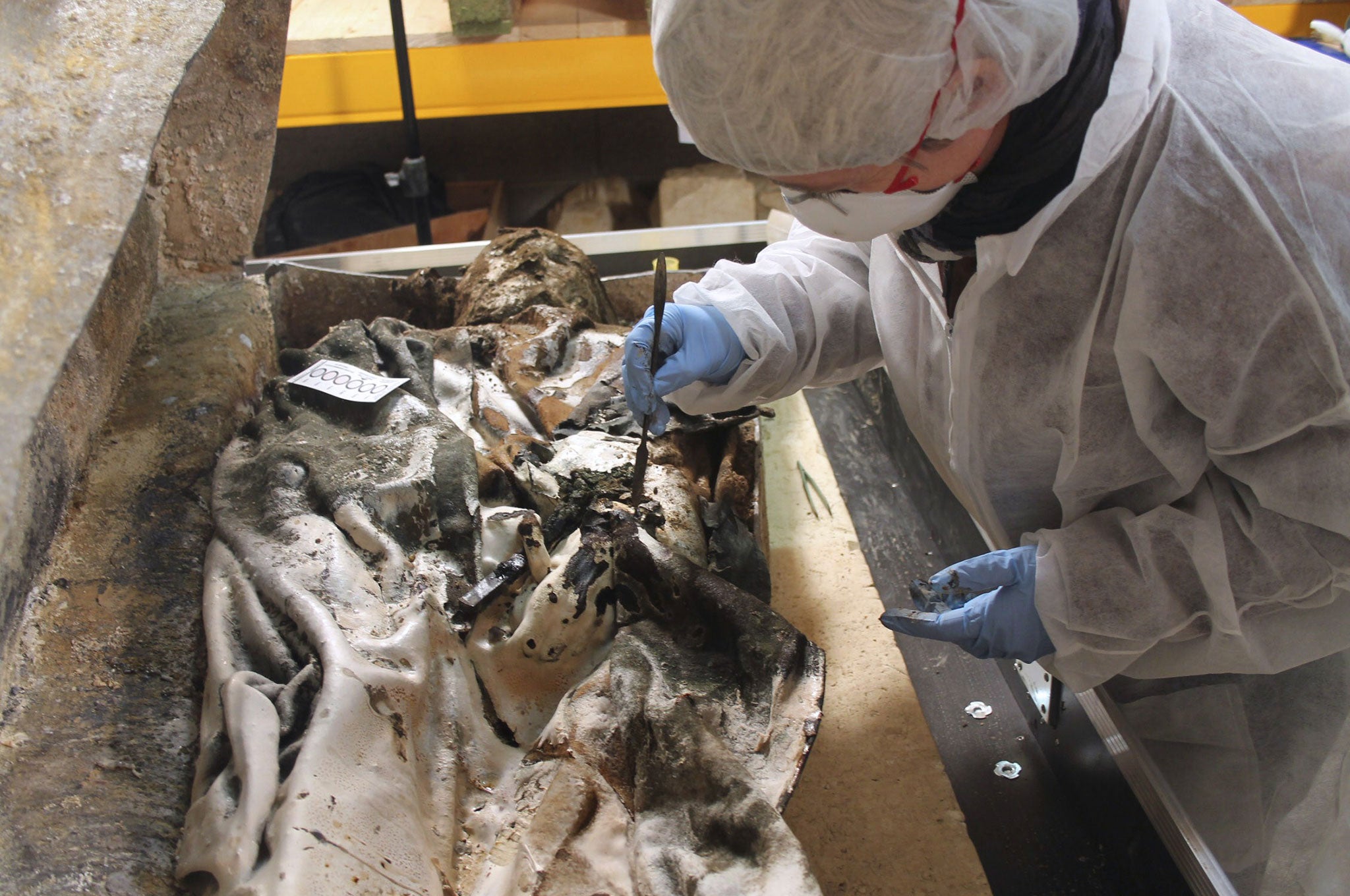French archaeologists uncover 'exceptional' tomb of 350 year old corpse, believed to be noblewoman Louise de Quengo
Much of her hair, skin, internal organs and brain were still intact

The "exceptional" tomb of a noblewoman who lived during the 17th Century has been uncovered in France.
The remarkably preserved remains were unearthed by a team in the north-western city of Rennes, at the excavation site of the convent of the Jacobins, before the area is built over with a convention centre.
The 1.45 metre (five foot) corpse is believed to be that of Louise de Quengo, wife of the powerful noble Toussaint Perrien, who died in 1656 when she was in her 60s. Various local media reported that much of her hair, skin, internal organs and brain were still intact.
According to Le Point, it was customary at the time to leave vital organs of deceased family members to relatives or a religious institution, which would explain why Louise de Quengo retained the heart of her husband after he died so it could be placed in her coffin.
Her body was wrapped in a cloak and she was dressed as a nun – likely because she adopted a monastic life following the death of her husband – and a crucifix was found in her hands.

Archaeologists managed to uncover around 800 graves at the site, with five coffins being of particular significance.
Built in 1369 after the War of Succession, the convent marked the victory of Jean IV of Montfort, Duke of Brittany.
A press release from the CNRS (National Centre of Scientific Research), said that the study provided a "rare insight into the funerary practises of the elite during the 17th Century".
A conference on the discovery will be held in Rennes for National Archaeology Day on 21 June.
Join our commenting forum
Join thought-provoking conversations, follow other Independent readers and see their replies
Comments